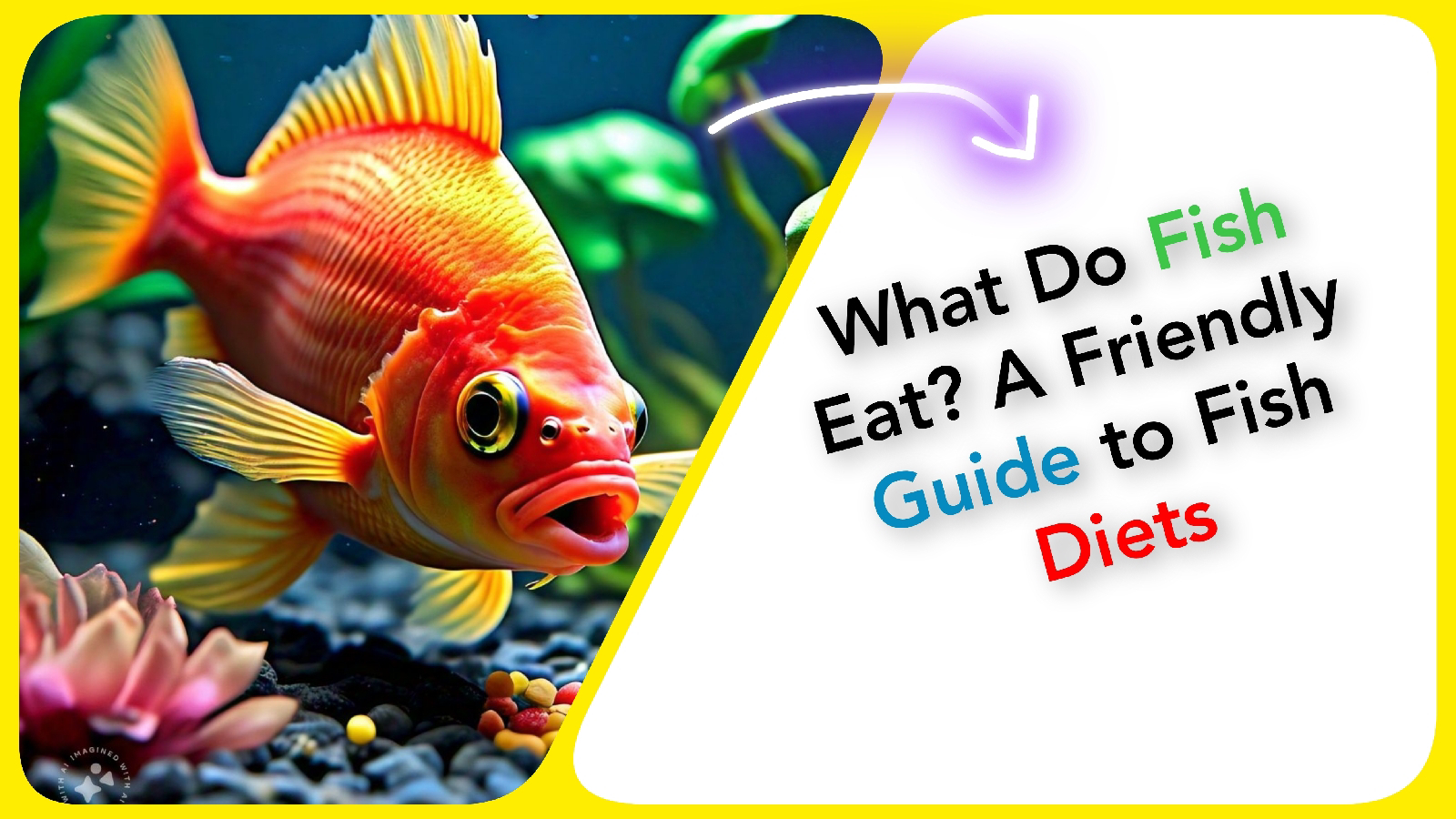What Do Fish Eat? A Friendly Guide to Fish Diets
Fish diets vary greatly depending on species, size, and environment. Here's a friendly guide:
Types of Fish Diets:
1. Carnivorous (meat-eaters): Feed on small animals, insects, and plankton.
2. Herbivorous (plant-eaters): Eat algae, aquatic plants, and fruits.
3. Omnivorous (both meat and plant-eaters): Consume a mix of food sources.
4. Detritivorous (decaying matter-eaters): Feed on dead plants and animals.
Common Fish Foods:
1. Phytoplankton (microalgae)
2. Zooplankton (small animals)
3. Insects (mosquito larvae, brine shrimp)
4. Crustaceans (krill, shrimp)
5. Small fish (fingerlings)
6. Algae
7. Commercial fish food (pellets, flakes)
Specific Diets for Popular Fish:
1. Goldfish: Omnivorous; eat commercial flakes, pellets, and live foods.
2. Betta Fish: Carnivorous; feed bloodworms, brine shrimp, and commercial pellets.
3. Guppies: Omnivorous; eat commercial flakes, algae, and small insects.
4. Cichlids: Omnivorous; consume commercial pellets, fruits, and vegetables.
5. Sharks/Rays: Carnivorous; feed meaty foods (fish, squid).
Feeding Tips:
1. Provide varied diets to ensure nutritional balance.
2. Avoid overfeeding; monitor fish growth and adjust portions.
3. Rotate foods to prevent dietary deficiencies.
4. Supplement with live or frozen foods for stimulation.
5. Research specific dietary needs for your fish species.
Nutritional Requirements:
1. Protein (40-60% of diet)
2. Fat (10-20% of diet)
3. Carbohydrates (10-20% of diet)
4. Vitamins (A, C, D, E)
5. Minerals (calcium, phosphorus)
Types of Fish Diets:
1. Carnivorous (meat-eaters): Feed on small animals, insects, and plankton.
2. Herbivorous (plant-eaters): Eat algae, aquatic plants, and fruits.
3. Omnivorous (both meat and plant-eaters): Consume a mix of food sources.
4. Detritivorous (decaying matter-eaters): Feed on dead plants and animals.
Common Fish Foods:
1. Phytoplankton (microalgae)
2. Zooplankton (small animals)
3. Insects (mosquito larvae, brine shrimp)
4. Crustaceans (krill, shrimp)
5. Small fish (fingerlings)
6. Algae
7. Commercial fish food (pellets, flakes)
Specific Diets for Popular Fish:
1. Goldfish: Omnivorous; eat commercial flakes, pellets, and live foods.
2. Betta Fish: Carnivorous; feed bloodworms, brine shrimp, and commercial pellets.
3. Guppies: Omnivorous; eat commercial flakes, algae, and small insects.
4. Cichlids: Omnivorous; consume commercial pellets, fruits, and vegetables.
5. Sharks/Rays: Carnivorous; feed meaty foods (fish, squid).
Feeding Tips:
1. Provide varied diets to ensure nutritional balance.
2. Avoid overfeeding; monitor fish growth and adjust portions.
3. Rotate foods to prevent dietary deficiencies.
4. Supplement with live or frozen foods for stimulation.
5. Research specific dietary needs for your fish species.
Nutritional Requirements:
1. Protein (40-60% of diet)
2. Fat (10-20% of diet)
3. Carbohydrates (10-20% of diet)
4. Vitamins (A, C, D, E)
5. Minerals (calcium, phosphorus)
Check out more post for such information.




Comments
Post a Comment